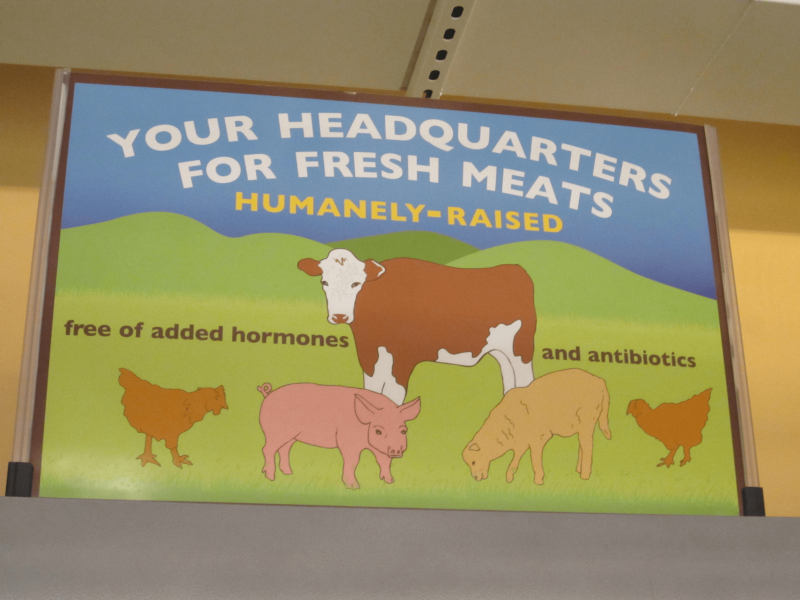Americans tend to think that the farmed animals we eat were treated better than they actually were. In one 2017 survey, 75% of respondents reported eating humane meat. Yet not even 1% of farmed animals come from humane operations (outside factory farms).
Part of this disconnect comes down to the vague word “humane.” The USDA allows food producers to use terms like “humanely raised” for industry-standard practices – essentially, factory farming. The research of the nonprofit Animal Welfare Institute (AWI) suggests that this flies in the face of what most people want and expect. 80% of consumers in a recent survey did not consider these types of conditions to be genuinely humane.
Food manufacturers have taken advantage of this vagueness by labelling all sorts of products humane.
For a recent analysis, the nonprofit Animal Welfare Institute (AWI) used the Freedom of Information Act to request the application documents backing up 97 claims, like “humanely raised” and “animal welfare,” presented on meat and egg labels. In nearly half of the cases, the USDA could not provide any such documents. More than a third of the time, the documents received were not relevant or sufficient to prove the claims being made.































